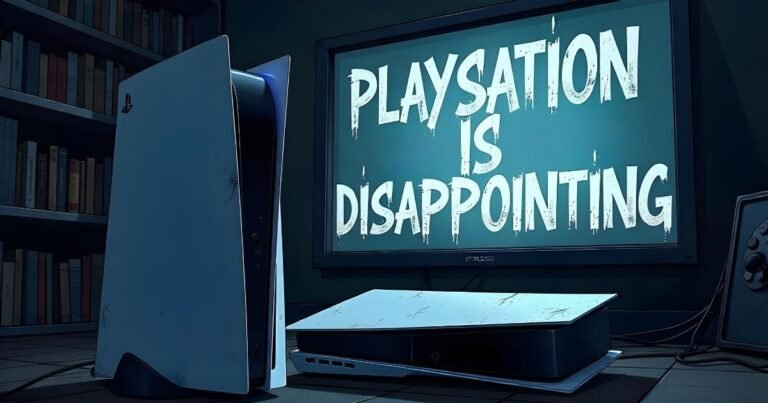Today, I want to discuss a topic you might not expect from a gamer—video game addiction. This is something I have personally experienced, and many of you may be facing it unknowingly. You might find it surprising that a gamer is addressing gaming addiction, but I believe it’s important to raise awareness. While I love playing video games and still do, it’s essential to recognize when gaming becomes excessive.
Is Gaming Really the Problem?
First, let’s clear up a common misconception: gaming is not inherently bad. When I was a kid, I didn’t have a PC at home, so I would play games at my cousin’s place. Back then, adults often claimed that gaming would ruin your brain, make kids lazy, or even turn them into slow thinkers. But none of this is true. Consider this: people who spend all day watching cricket, news, or binge-watching web series without a productive goal are also engaging in addictive behavior.
Some critics go so far as to comment, “You’re promoting gaming and corrupting kids. They should be studying or working to contribute to society, not wasting time on games.” Bringing nationalism into this debate only derails the conversation, doesn’t it? The truth is, no one can work nonstop. We all need downtime to relax and recharge, and for some, gaming is just that—a way to unwind. However, when gaming is not balanced, it can become a serious issue, potentially leading to addiction.
The Positive Side of Gaming
Before delving into addiction, let’s acknowledge some of the benefits of gaming. Research has shown that gaming offers various advantages. For example, playing first-person shooters (FPS) can improve your ability to navigate 3D spaces. In an FPS game, you’re often in a high-paced environment, moving through different terrains while hunting for enemies. This enhances not just your reaction time but also your hand-eye coordination and even your driving skills in real life. You also learn to handle high-pressure situations, managing multiple tasks such as driving, shooting, dodging bullets, reloading, and throwing grenades—all at the same time.
It’s not just about shooters; strategy games, role-playing games (RPGs), and puzzle games can significantly improve problem-solving skills in real life. Even a simple game like Angry Birds can contribute to better mental health. However, all these benefits come with a crucial caveat: gaming must be enjoyed in moderation. That’s why video game addiction is such a significant concern.
Understanding Video Game Addiction
According to experts, it occurs when gaming becomes excessive and uncontrollable, leading to disruptions in other areas of life. You may start ignoring essential responsibilities, and choosing to spend all your time playing games. Your life begins to revolve around that one source of happiness—gaming. Recognizing this issue, the World Health Organization (WHO) has classified gaming disorder as a mental health condition. As a result, rehab centers specifically for gaming addiction have emerged in many countries to help those struggling with this issue.
Causes of Gaming Addiction
There isn’t just one cause of gaming addiction—there are several.
1. Escapism
One major factor is escapism. Video games offer an alternate reality where there’s no stress from homework, work, or other real-life responsibilities. It’s easy to get lost in this virtual world and forget about the real one. But when this escapism becomes excessive, it can turn into a gaming disorder. I’ve witnessed people who begin to treat video games as if they were real life. If things don’t go their way in a game, they might lash out at others, become excessively angry, or even break things in frustration. Such toxic behavior often stems from an inability to distinguish between the game and reality, a hallmark of gaming disorder.
2. Social Connections
Another contributing factor is the social aspect of gaming. Individuals who struggle to connect with others in real life may turn to games, where they can form friendships and bonds without revealing their true identity. This anonymity can be comforting, allowing them to feel accepted and valued. But this social connection in gaming is a double-edged sword. It can lead to dependency, where players spend more time in the virtual world than in the real one.
3. Instant Gratification
Instant gratification is another major reason behind gaming addiction. Many games offer daily login rewards, challenges, and instant rewards that keep players engaged. These quick wins create a sense of achievement. In contrast, real life doesn’t work that way. When starting a new job, subject, or skill, you don’t see results immediately. It takes time and effort, and even after mastering something, the rewards are not always immediate. This discrepancy can make games more appealing, as they provide a quicker path to satisfaction.
However, as you progress in a game, these rewards start to diminish, forcing you to invest more time and effort to achieve the same satisfaction. By this point, you’re already hooked. It’s a deliberate strategy by gaming companies to make their games as addictive as possible. The more time you spend playing, the more money they make.
How Game Developers Encourage Addiction
I once attended an event for a popular game (I won’t name it), where the developers shared that one player spent 18 hours a day on their game. For the developers, this was a badge of honor—it meant they had created a game so engaging that someone was willing to spend almost their entire day playing it. But from a neutral perspective, it’s alarming. Why would someone dedicate 18 hours of their day to a game? Even with unlimited free time, this is detrimental from any angle.
Many large gaming companies even employ psychologists to make their games more addictive. These professionals analyze human behavior and thought patterns to design games that keep players hooked. From carefully chosen colors and sound effects to engaging animations and in-game economies, every element is crafted to keep you playing. Essentially, you’re up against a team of experts whose goal is to control your attention and, ultimately, your mind.
The Trap of Excessive Gaming
Excessive gaming can have numerous harmful effects. The first and most obvious is the sheer amount of time wasted. While playing for a few hours a day is usually harmless, when you start gaming for 5-6 hours or even 8-10 hours daily, it can lead to neglect of other important aspects of life. Over time, this imbalance starts to take a toll on your health. You may experience weakened eyesight, weight gain, reduced physical strength, and a host of other health issues. Our bodies weren’t designed to sit for long hours at a desk or gaming setup. They are meant for physical activity and movement.
People in desk jobs often have no choice but to sit for prolonged periods. However, as a gamer, this is a voluntary choice. Even if you’re making friends online, your real-life relationships, friendships, and support systems may begin to deteriorate. Gaming offers instant rewards and excitement, which can make other aspects of life seem dull, leading you to play even more.
You might wonder, “Didn’t you mention the scientific benefits of gaming earlier, like improved reaction time, thinking skills, coordination, and problem-solving abilities?” Yes, these benefits do exist, but moderation is key. For instance, playing badminton for hours every day will certainly improve your fitness and mental health. But what about your other responsibilities—your studies, work, or family time? You can’t play badminton all day unless you’re training to become a professional athlete. Similarly, spending your entire day gaming is only justifiable if you’re pursuing a career in esports or game development.
Gaming with Purpose
One of the biggest pitfalls of gaming addiction is self-deception. When parents or others criticize excessive gaming, many respond by saying, “Gaming can be a career! People have become millionaires from it.” While this is true, it’s essential to be honest with yourself. Ask yourself, “What’s my end goal with gaming?” If you’re gaming just for fun, that’s okay—but set limits. Prioritize your studies, work, health, and family, and then allocate some time for gaming.
If your goal is to become a professional esports player, then you need to train like one. This means more than just playing games; it involves studying gameplay strategies, watching esports player interviews, reading articles on performance improvement, and tracking your progress. It’s a structured, disciplined approach, just like any other profession.
If your aim is to become a successful streamer, approach gaming with that specific purpose. I see many people streaming for hours with barely any viewers, simply because they don’t know the right games to stream, how to create engaging thumbnails, or how to interact with their audience. Instead of just playing for fun, stream with the intention of learning and improving. Research what popular streamers do differently, analyze your performance, and constantly adapt your strategy.
Stop lying to yourself! If gaming is truly your career goal, it requires genuine effort, strategic planning, and a commitment to constant improvement. Endless hours of playing without direction won’t get you there. Whether you want to be a pro gamer, a streamer, or even work in game development, you need a clear plan and disciplined approach to succeed.
How to Control Gaming Addiction: Practical Tips
So, how do we control gaming addiction? Some suggest avoiding multiplayer games because they’re often more addictive due to their social component. While this is partially true, it’s important to remember that single-player games can be equally addictive. In fact, in my experience, they can sometimes be even more compelling. So, what’s the solution?
Step 1: Recognize Your Patterns
Start by identifying your gaming habits. When do you typically start playing? How long do you play, and is it affecting your studies, work, or other responsibilities? Understanding your triggers is crucial. For example, do you find yourself playing games during class or work hours? Are there too many games installed on your computer or smartphone, making it easy to get distracted?
Step 2: Modify Your Environment
Once you’ve identified your triggers, change your environment to minimize temptation. If you tend to play games while sitting at the back of a classroom, move to the front. If you bring your phone to the gym and end up gaming there, try leaving your phone at home or in the locker. If you have multiple games installed on your device, uninstall most of them and keep just one. The large file sizes of modern games can act as a deterrent to reinstalling them quickly, which can be a helpful barrier.
Step 3: Break the Cycle
The goal is not to quit gaming entirely but to interrupt the habit loops you’ve formed. Replace gaming with another activity when you feel the urge to play. Take a walk, engage in a conversation with family, or pick up a new hobby. By doing this, you’ll break the neural connections formed around gaming and create new ones associated with healthier activities. Remember, the idea is not to eliminate gaming but to control it.
Balance Your Responsibilities and Gaming
Everyone has obligations—whether it’s schoolwork, a job, or family duties. These should always come first. Once you’ve handled your responsibilities, you can turn to gaming. After all, gaming is a form of entertainment, much like watching a movie or listening to music. It should be treated as a reward, not a routine.
Set aside specific times for gaming that don’t interfere with your daily tasks. If you can carve out an hour or two each day, that’s fantastic! Even if you only get to play a few hours a week, that’s fine too. The key is to ensure that gaming doesn’t encroach upon your primary duties.
Always remember that games aren’t real life. The achievements and virtual currency you earn in games won’t translate into real-world benefits like buying a car or paying rent. However, when you’ve completed your work, studies, or daily chores, the satisfaction of playing a game can be even more rewarding. It becomes a way to unwind, not an escape from your real-life obligations.




